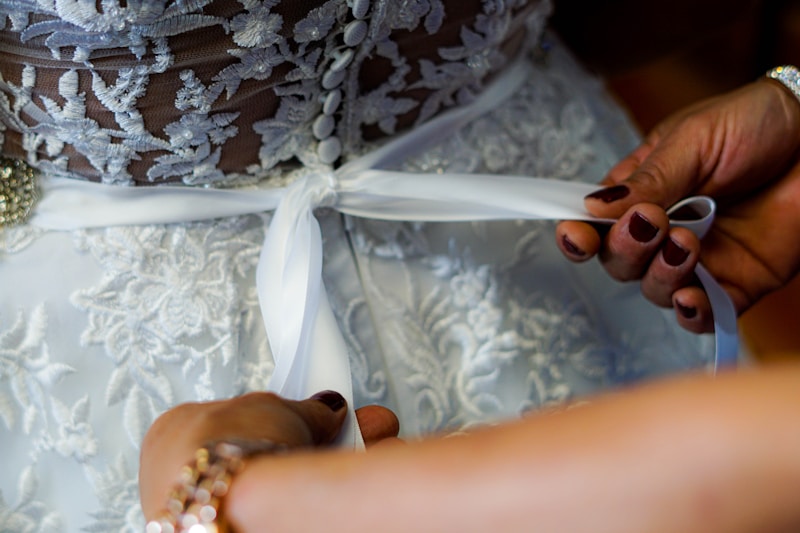Exploring Heritage and Modernity in Bridal Collections: A Perfect Fusion
Exploring Heritage and Modernity in Bridal Collections: A Perfect Fusion
In the ever-evolving world of bridal fashion, the juxtaposition of heritage and modernity is a topic that continues to inspire designers and brides alike. Wedding collections are no longer confined to traditional silhouettes and fabrics; instead, they embrace a rich tapestry of cultural influences and contemporary trends. This article delves into how bridal collections harmoniously blend the charm of heritage with the audacity of modern design, ensuring that every bride can express her individuality while honoring the traditions of her ancestry.
The Importance of Heritage in Bridal Fashion
Heritage plays a significant role in defining bridal wear, bringing together a myriad of cultural elements that reflect a bride's background. For many, a wedding ceremony is not merely a union of two individuals but a celebration of their family's history.
Traditional Fabrics and Techniques
Many bridal collections incorporate traditional fabrics such as silk, lace, and embroidery, which have been passed down through generations. These materials are often crafted using age-old techniques that celebrate the artistry of skilled artisans. For instance:
| Fabric | Significance |
| Silk | Known for its luxurious feel and sheen, often used in royal bridal gowns. |
| Lace | A traditional element signifying elegance and intricate craftsmanship. |
| Embroidery | Symbolizes personal stories and cultural narratives through designs. |
Cultural Symbolism in Bridal Wear
Bridal attire varies significantly across cultures, and many designers draw inspiration from these distinctive styles. For example, Indian bridal wear often features heavy embroidery and vibrant colors, reflecting cultural traditions. In contrast, Western weddings may showcase minimalist designs with a focus on elegance. This diversity inspires designers to create collections that not only showcase modernity but also pay homage to cultural roots.

Modern Trends in Bridal Collections
While the significance of heritage in bridal fashion remains steadfast, modern trends are continually reshaping the landscape. Designers are increasingly embracing contemporary styles that cater to the preferences of today’s brides.
Minimalism and Clean Lines
One of the most notable trends in recent years is the rise of minimalism. Modern brides often prefer clean lines and simple silhouettes that convey sophistication. This trend allows for the fabric and craftsmanship to take center stage, highlighting the quality and details of the gown rather than relying on excessive embellishments.
Bold Colors and Unique Patterns
Another modern trend is the use of bold colors and unconventional patterns. Gone are the days when white was the only acceptable hue for a wedding gown. From soft pastels to striking jewel tones, contemporary collections encourage brides to express their personality through color choices. Designers like Vera Wang have successfully introduced colorful gowns into bridal fashion, allowing brides to step away from tradition.
Bridging the Gap: Combining Heritage and Modernity
The challenge for many designers is to create a seamless blend of heritage and modernity. This integration can be achieved in various ways:
Layering Traditional Elements with Modern Cuts
Designers are adeptly layering traditional elements such as embroidered lace with modern cuts. For example, a classic A-line gown may feature intricate lace overlays, creating a striking visual contrast that appeals to both traditionalists and modern brides.
Eclectic Accessories
Accessories also play a vital role in this fusion. Brides often choose modern jewelry to complement vintage-inspired gowns or vice versa. A traditional veil may be paired with contemporary shoes, creating an unexpected yet harmonious look.
The Role of Prominent Designers in Shaping Trends
Influential designers have a significant impact on the bridal fashion landscape, spearheading collaborations that combine heritage with modern aesthetics. Their unique perspectives allow them to push boundaries while respecting cultural traditions.
Notable Designers and Their Influence
Designers like Oscar de la Renta, Pronovias, and Monique Lhuillier have successfully finessed the relationship between heritage and modernity in their collections. Their designs often tell a story, beautifully intertwining traditional motifs with modern silhouettes, thus appealing to a diverse range of brides.
FAQs About Heritage and Modernity in Bridal Collections
1. How can I incorporate heritage into my modern bridal look?
Consider using family heirlooms, such as jewelry or fabric from your family’s past, and incorporate them into your wedding attire. You can also choose a gown that pays homage to your culture while maintaining a contemporary style.
2. Are there any specific cultures that influence modern bridal trends?
Yes, many cultures contribute to modern bridal trends. For instance, the intricate embroidery typically found in Indian bridal wear has inspired many designers to incorporate detailed stitching into modern gowns. Similarly, Japanese kimonos influence contemporary bridal decorations and layering techniques.
3. What should I look for when choosing a bridal gown that combines both elements?
Focus on gowns that feature classic elements, like lace or embroidery, in new and innovative cuts. Look for unique details that speak to your heritage while also aligning with current fashion trends.
Conclusion: Finding the Perfect Balance
In conclusion, the intersection of heritage and modernity in bridal collections allows brides to celebrate their identity while embracing contemporary style. The world of bridal fashion is vast and diverse, offering endless opportunities to incorporate personal history into stunning designs. With careful consideration and creativity, brides can find gowns that not only reflect their individuality but also honor the traditions that have shaped their lives.
As you embark on your bridal fashion journey, remember to seek balance between heritage and modernity. Explore collections that resonate with your cultural background while also allowing for modern expression. Ultimately, your wedding gown should reflect who you are and what you stand for, harmonizing the past with the present for a truly unforgettable look on your special day.
